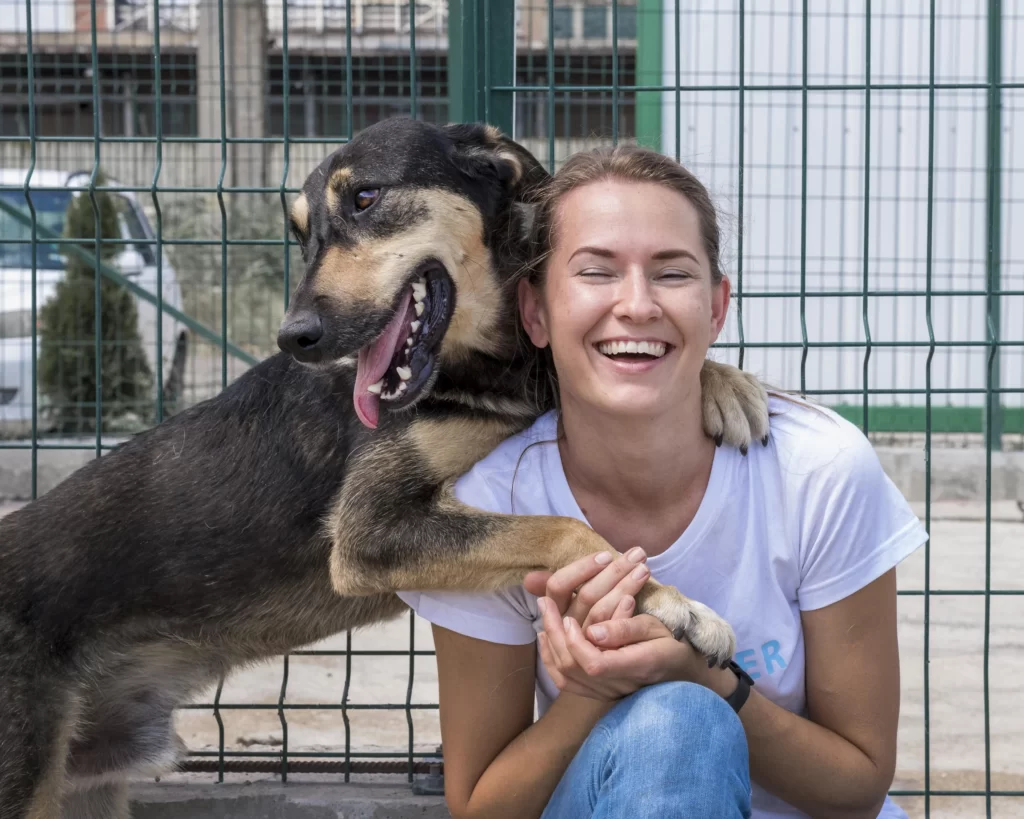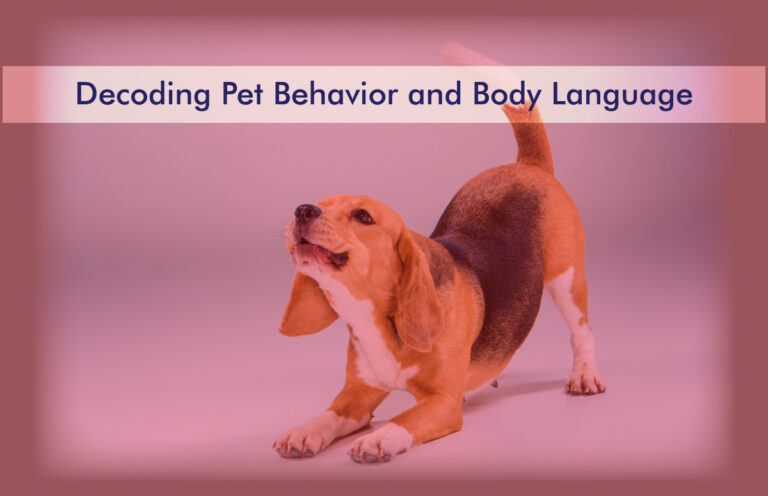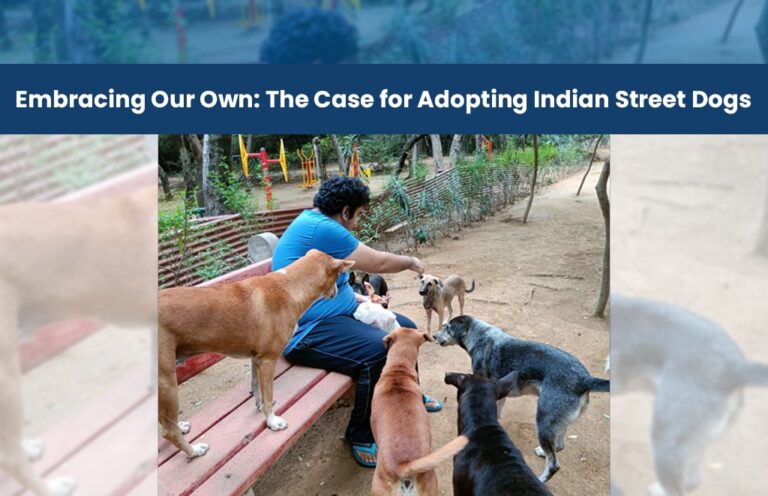Why Adopting a Pet is Better than Buying One
Table of Contents
- Introduction
- The Problem with Buying Pets
- The Positive Impact of Pet Adoption Benefits
- Busting Myths About Shelter Pets
- Guidance for Prospective Adopters
- Community Impact and Advocacy for Adoption
- FAQ
- Conclusion
Introduction
Suppose you are thinking of adding a furry friend to your family. In that case, you might be wondering whether to buy a pet from a breeder or a pet shop or adopt one from a shelter or a rescue group. While both options have their pros and cons, there are many compelling reasons why adopting a pet is better than buying one. In this blog post, we will explore some of the pet adoption benefits, bust some myths about shelter pets, and offer some guidance for prospective adopters.
The Problem with Buying Pets
Many people who buy pets from breeders or pet stores are unaware of the dark side of the pet industry. Millions of dogs and cats are bred in cruel conditions in puppy mills and kitten factories, where they are housed in dirty, overcrowded cages without the necessary care or socialization and frequently develop illnesses and genetic problems. This information is according to Humane Society International. These animals are then sold to unsuspecting customers, who may end up with high veterinary bills and emotional distress.
Another issue with buying pets is that it contributes to the pet overpopulation crisis. According to the World Health Organisation, an estimated 200 million stray dogs and 300 million stray cats worldwide. Many of these animals suffer from malnutrition, illness, abuse, and extermination. In India alone, there are about 35 million stray dogs and 60 million stray cats; only a fraction are sterilized or vaccinated. Buying a pet creates more demand for breeding while ignoring the plight of the homeless animals who desperately need a home.

The Positive Impact of Pet Adoption Benefits
Adopting a pet is not only a humane and compassionate choice but also a rewarding and fulfilling one. When you adopt a pet, you positively impact several levels, such as the individual, the social, and the environment. Here are some ways that adoption can benefit you, the pet, and the world.
- On the individual level, adopting a pet can improve your mental and emotional well-being and physical health. Research has revealed that pet ownership can reduce stress, anxiety, depression, and loneliness and increase happiness, self-esteem, and social support. Pets can also provide companionship, comfort, and unconditional love and help you cope with life’s challenges. Adopting a pet can be especially beneficial for people who live alone, have disabilities, or suffer from trauma or mental illness. Moreover, pets can encourage you to adopt a healthier lifestyle, such as exercising more, eating better, and sleeping better. Pet adoption benefits are pets can also lower your blood pressure, cholesterol, and risk of heart disease and stroke.
- Adopting a pet can improve social connections with friends, family, and the neighbourhood. Pet adoption benefits can help you bond with your loved ones and enhance communication, empathy, and trust. Pets can also help you meet new people and expand your social network. Additionally, pets can bring joy and enjoyment into your life and act as a source of inspiration, education, and entertainment. Adopting a pet can also teach you valuable life skills, such as responsibility, commitment, and compassion. Adopting a pet can also make you a more responsible and caring citizen and a role model for others.
- On the environmental level, Pet adoption benefits include helping you reduce your ecological footprint and contribute to a more sustainable and humane world. A pet’s life is saved and given a second opportunity at a happy and healthy life through adoption. You are also freeing up space and resources for another animal in need and supporting the noble work of the shelters and rescue groups. By adopting a pet, you are also making a statement against the cruel and unethical practices of the pet industry, such as puppy mills, kitten factories, and animal testing. By adopting a pet, you are also helping to reduce the pet overpopulation problem, which causes many environmental issues, such as pollution, disease, and wildlife conflict.
As you can see, adopting a pet is better than buying one for many reasons. Adopting a pet can have a positive impact on your life and the lives of others. Pet adoption benefits can also make a difference and create a more humane and compassionate society. If you’re thinking of bringing a pet into your home, consider adopting instead of buying, and you will not regret it.

1) Saving Lives and Offering a Second Chance
When you adopt a pet, you are literally saving a life. According to People for Animals, an animal welfare organization in India, about 15 million animals are euthanized in shelters every year due to inadequate space and resources. Pet adoption benefits gives them a second chance at a happy and healthy life. It frees up space and resources for another animal in need. You are also making a statement against the cruel and unethical practices of the pet industry and supporting the noble work of the shelters and rescue groups.
One of the most compelling reasons to adopt a pet is that you are literally saving a life. According to the People for Animals, an animal welfare organization in India, about 15 million animals are euthanized in shelters every year due to a lack of space and resources. These animals are often healthy, friendly, and adoptable. Still, they are unlucky to be born in a country with more pets than homes. Pet adoption benefits give pets a second chance at a happy and healthy life and prevents them from becoming another statistic.
Pet adoption benefits include saving a life in another way. Many of the pets available for adoption are rescued from abusive, neglectful, or dangerous situations, such as abandonment, hoarding, fighting, or breeding. These animals may have suffered physical or psychological trauma and may have special needs or requirements. Adopting a pet provides them a safe and loving environment where they can heal, recover, and thrive. You are also helping them overcome their past and learn to trust and love again.
Adopting a pet can also save a life in a third way. Many pets available for adoption are senior or special needs pets, often overlooked or discriminated by potential adopters. These animals may have medical or behavioural issues like arthritis, diabetes, blindness, deafness, or anxiety. These animals may also have shorter life spans and require more care and attention. By adopting a pet, you are giving them a chance to enjoy their golden years and to experience the comfort and dignity they deserve. You are also showing them that they are not forgotten and that they matter.
As you can see, adopting a pet can save a life in many ways. Adopting a pet can also offer a second chance to an animal otherwise doomed to a life of misery or death. Adopting a pet can also make a difference and create a more humane and compassionate society. If you are considering adding a furry friend to your family, consider adopting instead of buying, and you will not regret it.
2) Emotional Benefits for the Adopter
Pet adoption benefits can also positively impact your mental and emotional well-being. Studies have shown that pet companionship can reduce stress, anxiety, depression, and loneliness and increase happiness, self-esteem, and social support. Pets can also provide friendship, comfort, and unconditional love and help you cope with life’s challenges. Adopting a pet can be especially beneficial for people who live alone, have disabilities, or suffer from trauma or mental illness.
Pets can help you reduce stress by providing a calming and soothing presence and encouraging you to relax and unwind. Pets can also help you release endorphins, the natural chemicals that make you feel good and reduce pain. Pets can also help you cope with anxiety by distracting you from your worries and offering security and stability. Pets can also help you overcome fears and phobias, such as social anxiety or agoraphobia, by acting as a support system and a confidence booster.
Pet adoption benefits can help you combat depression by providing a source of joy and happiness and by giving you a purpose and meaning in life. Pets can also help you fight loneliness by providing a loyal and faithful friend and keeping you company and entertained. Pets can also help you improve your social skills and relationships by facilitating interactions and connections with others who share your love for animals. Pets can also help you develop empathy and compassion by teaching you to care for and understand another living being.
Pets can help you enhance your happiness by providing an optimistic outlook and making you laugh and smile. Pets can also help you boost your self-esteem and self-confidence by giving you unconditional acceptance and appreciation and making you feel needed and valued. Pets can also help you achieve your goals and dreams by motivating you to pursue your passions and interests and inspiring you to learn new skills and hobbies.
Pets can help you heal from trauma or mental illness by providing a safe and supportive environment and by helping you process and express your emotions. Pets can also help you recover from addiction or substance abuse by providing a healthy and positive alternative and by helping you stay sober and accountable. Pets can also help you cope with grief or loss by providing comfort and consolation and helping you move on and find hope.
As you can see, adopting a pet can positively impact your mental and emotional well-being. Adopting a pet can also improve your physical health, social life, and environmental impact. Adopting a pet can save a life, offer a second chance, and make a difference. If you are considering adding a furry friend to your family, consider adopting instead of buying, and you will not regret it.

3) Reducing Overpopulation and Supporting Shelters
Another benefit of adopting a pet is that you are helping to reduce the pet overpopulation problem and supporting the efforts of the shelters and rescue groups. Most pets available for adoption are already spayed or neutered, vaccinated, and microchipped, making them less likely to reproduce or get lost. By adopting a pet, you are also paying a nominal adoption fee, which helps the shelters and rescue groups cover their operational costs and continue their mission of saving more animals.
Pet overpopulation is a serious and widespread issue that affects millions of animals and humans worldwide. There are an estimated 200 million stray dogs and 300 million stray cats worldwide, according to the World Health Organisation. Many of these animals suffer from malnutrition, illness, abuse, and extermination. In India alone, there are about 35 million homeless dogs and 60 million stray cats, and only a fraction of them are sterilized or vaccinated. These animals pose a threat to public health and safety, as they can transmit diseases such as rabies, leptospirosis, and scabies and cause accidents, injuries, and conflicts. These animals also suffer from hunger, thirst, pain, and fear and have a low quality of life and a high mortality rate.
Shelters and rescue groups are the leading organizations working to address the pet overpopulation problem and provide care and protection for homeless animals. They rescue, rehabilitate, and rehome the animals, providing them with medical and behavioural treatment, food and water, shelter and comfort, and love and respect. They also promote and facilitate spaying and neutering, vaccinating, and microchipping, and educate and raise awareness among the public about pet adoption benefits and responsibilities of pet ownership. However, these organizations face many challenges and limitations, such as more funds, space, staff, and volunteers, and high demand and low supply of adoptable animals.
By adopting a pet, you help reduce the pet overpopulation problem and support the efforts of the shelters and rescue groups. You also positively impact the environment, society, and the economy, creating a more humane and compassionate world. If you are considering adding a furry friend to your family, consider adopting instead of buying, and you will not regret it.
Busting Myths About Shelter Pets
Despite the many advantages of adoption, some people still have misconceptions and doubts about shelter pets. Here are some of the common myths and the facts behind them.
1] Myth: Shelter pets are damaged, defective, or dangerous.
Fact: Shelter pets are not inferior or defective in any way. They are simply victims of unfortunate circumstances, such as abandonment, abuse, neglect, or loss of their owners. They are less likely to have behavioural or health problems than pets from other sources. In fact, many shelter pets are well-trained, well-socialized, and well-adjusted. They can easily adapt to a new home and family. Shelter staff and volunteers also screen the pets for any issues and provide them with the necessary care and treatment before putting them up for adoption.
2] Myth: Shelter pets are old, sick, or ugly.
Fact: Shelter pets come in all shapes, sizes, ages, and breeds. You can find puppies and kittens, as well as adult and senior pets, who are equally deserving of love and attention. You can also find purebred and mixed-breed pets equally beautiful and unique. Shelter pets are less prone to illness or disease than pets from other sources. They are regularly checked by veterinarians and given preventive care and treatment. Many shelters also have policies to ensure that pets are healthy and fit for adoption.
3] Myth: Shelter pets are unsuitable for families with children or other pets.
Fact: Shelter pets can make great family pets if matched with the right family and environment. Shelter staff and volunteers can help you find a pet that suits your lifestyle, preferences, and expectations. They can also advise you on introducing the pet to your children and other pets and ensure a smooth and safe transition. Many shelter pets are already used to living with children and other animals and can easily bond with them.
Guidance for Prospective Adopters
If you are convinced that adopting a pet is better than buying one and are ready to take the next step, here are some tips to help you find and embrace your perfect pet.
Choosing the Right Pet for Your Lifestyle
Before looking for a pet, consider your lifestyle and what pet would suit you best. Consider your living space, budget, schedule, activity level, and personality and how they affect your ability to care for a pet. For example, if you live in a small apartment, avoid large or energetic dogs that need much space and exercise. If you have a tight budget, avoid pets that require a lot of grooming, food, or veterinary care.
If you have a busy schedule, you should avoid pets that need attention, training, or socialization. If you are a couch potato, you should avoid pets that are too active or playful. Avoid pets that shed a lot or have long hair if you are allergic. Once you know what kind of pet would suit you best, you can browse the shelters and rescue groups’ websites or visit them in person.
You can also use online platforms like Petfinder or Adopt a Pet to search for available pets by location, type, breed, age, size, and gender. You can filter the results by specific criteria, such as good with kids, good with dogs, suitable with cats, house-trained, special needs, etc.
Preparing Your Home and Family
Before you bring your new pet home, prepare your home and family for their arrival. Here are some things you need to do:
- Buy the necessary supplies, such as food, bowls, toys, bed, crate, leash, collar, tag, litter box, scratching post, etc.
- Pet-proof your home by hiding or securing wires, cords, plants, chemicals, medications, trash, and other potential hazards.
- Designate a safe and comfortable space for your pet to rest, eat, play, and feel secure.
- Set some ground rules and expectations for your family members, such as who will feed, walk, groom, and train the pet and how to interact with them appropriately.
- Arrange a visit to the veterinarian to check your pet’s health, update their vaccinations, and get them spayed or neutered if they are not already.
Finding a Reputable Adoption Source
When you find a pet you want to adopt, you must ensure that the source is reputable and trustworthy. Here are some signs of a good adoption source:
- They have a clear and transparent adoption process, policy, and fee.
- They screen the adopters and the pets and match them based on compatibility and suitability.
- They provide the adopters with the pet’s medical and behavioural history and any special needs or requirements.
- They offer post-ad
- They offer post-adoption support and guidance, such as follow-up calls, vet referrals, training tips, etc.
- They have a good reputation and positive reviews from previous adopters and other sources.
You can find reputable adoption sources by researching online, asking for recommendations from friends, family, or veterinarians, or visiting local shelters and rescue groups in person.

Completing the Adoption Process
You must complete the adoption process once you have found a reputable adoption source and a suitable pet. The process may vary depending on the source, but it usually involves the following steps:
- Fill out an application form, where you provide your personal and contact information and answer some questions about your lifestyle, preferences, and expectations.
- Have an interview with the adoption staff or volunteer, where they review your application, ask you more questions, and verify your identity and address.
- Meet the pet in person, where you interact with them, observe their behaviour and personality, and see if you have a good connection and chemistry.
- Signing an adoption contract, where you agree to the terms and conditions of the adoption, such as providing proper care and treatment, spaying or neutering, microchipping, vaccinating, etc.
- An adoption fee covers the cost of the pet’s care and treatment and helps the adoption source continue their work.
- Take the pet home, where you introduce them to your home and family, and start your new life together.
Community Impact and Advocacy for Adoption
Adopting a pet is not only a personal decision but also a social one. Pet adoption benefits are it positively impacts your community and society and advocate for a more humane and compassionate world. Here are some ways you can do that:
- Share your adoption story and experience with others, such as your friends, family, neighbours, co-workers, or social media followers. You can also write a review or testimonial for the adoption source and encourage others to adopt instead of buy.
- Educate yourself and others about the issues and challenges facing homeless animals, such as overpopulation, euthanasia, abuse, neglect, and disease. You can also raise awareness and funds for the shelters and rescue groups working to save them.
- Volunteer your time, skills, or resources to the shelters and rescue groups in your area, such as fostering, transporting, grooming, training, or donating. You can also organize or participate in events and campaigns that support their cause, such as adoption drives, fundraisers, or petitions.
- Report any cases of animal abuse or neglect that you witness or suspect, such as abandonment, hoarding, fighting, or breeding. You can also lobby or advocate for better laws and policies that protect and promote animal welfare and rights.

FAQ
How much does it cost to adopt a pet?
The cost of adopting a pet depends on the source, the type, the breed, the age, and the condition of the pet. Adopting pets doesn’t cost anything. Sometimes, the adoption fee ranges from Rs. 500 to Rs. 5000, which covers the pet’s care and treatment costs, such as spaying or neutering, vaccinating, microchipping, deworming, etc. The adoption fee is often much lower than the cost of buying a pet from a breeder or a pet shop, ranging from Rs. 10,000 to Rs. 1,00,000 or more.
How long does it take to adopt a pet?
The time it takes to adopt a pet depends on the source, the availability, and the demand of the pet. Generally, the adoption process can take a few days to a few weeks, depending on how quickly you complete the application, the interview, the meeting, and the contract. Some sources may have a waiting list or a reservation system, while others may operate on a first-come, first-served basis.
What are the requirements to adopt a pet?
The requirements to adopt a pet vary depending on the source, the type, the breed, and the age of the pet. Generally, the requirements include being at least 18 years old, having a valid ID and address proof, having a stable income and living situation, having the consent and support of your family and landlord, having the time and ability to care for and train the pet, and having no history of animal abuse or neglect. Some sources may have additional or specific requirements, such as having a fenced yard, having no other pets, or having a certain experience level.
What are the challenges of adopting a pet?
Adopting a pet can be a fulfilling and satisfying experience, but can come with challenges and commitments. Some challenges include adjusting to the pet’s personality and behaviour, dealing with the pet’s past trauma or issues, providing the pet with proper care and treatment, training and socializing the pet, and coping with the pet’s ageing or death. Adopting a pet is a lifelong commitment, and it requires patience, dedication, and love.
What are the Pet adoption benefits?
For numerous reasons, adopting a pet is preferable to purchasing one. Adopting a pet can save a life, offer a second chance, and make a positive impact. Adopting a pet can also provide emotional benefits, reduce overpopulation, and support shelters. Adopting a pet can also bust myths, offer guidance, and create community. Adopting a pet is a humane, compassionate choice that is rewarding and fulfilling.
Where can I find a pet to adopt?
You can find a pet to adopt from various sources, such as shelters, rescue groups, foster homes, or online platforms. You can browse the websites of the shelters and rescue groups in your area or visit them in person. You can also use online platforms like Petfinder or Adopt a Pet to search for available pets by location, type, breed, age, size, and gender. You can filter the results by specific criteria, such as good with kids, good with dogs, suitable with cats, house-trained, special needs, etc.
How can I make sure that the adoption source is reputable and trustworthy?
You can ensure the adoption source is reputable and trustworthy by researching, asking for recommendations, or visiting them in person. Here are some signs of a good adoption source:
- They have a clear and transparent adoption process, policy, and fee.
- They screen the adopters and the pets and match them based on compatibility and suitability.
- They provide the adopters with the pet’s medical and behavioural history and any special needs or requirements.
- They offer post-adoption support and guidance, such as follow-up calls, vet referrals, training tips, etc.
- They have a good reputation and positive reviews from previous adopters and other sources.
How can I prepare my home and family for the new pet’s arrival?
You can prepare your home and family for the arrival of the new pet by doing the following things:
- Buy the necessary supplies, such as food, bowls, toys, bed, crate, leash, collar, tag
- Buy the essential supplies, such as food, bowls, toys, bed, crate, leash, collar, tag, litter box, scratching post, etc.
- Pet-proof your home by hiding or securing wires, cords, plants, chemicals, medications, trash, and other potential hazards.
- Designate a safe and comfortable space for your pet to rest, eat, play, and feel secure.
- Set some ground rules and expectations for your family members, such as who will feed, walk, groom, and train the pet and how to interact with them appropriately.
- Arrange a visit to the veterinarian to check your pet’s health, update their vaccinations, and get them spayed or neutered if they are not already.
Conclusion
Adopting a pet makes better sense than buying one for many reasons. Adopting a pet can save a life, offer a second chance, and make a positive impact. Adopting a pet can also provide emotional benefits, reduce overpopulation, and support shelters. Adopting a pet can also bust myths, offer guidance, and create community. Adopting a pet is a humane, compassionate choice that is rewarding and fulfilling. If you are considering adding a furry friend to your family, consider adopting instead of buying, and you will not regret it.







